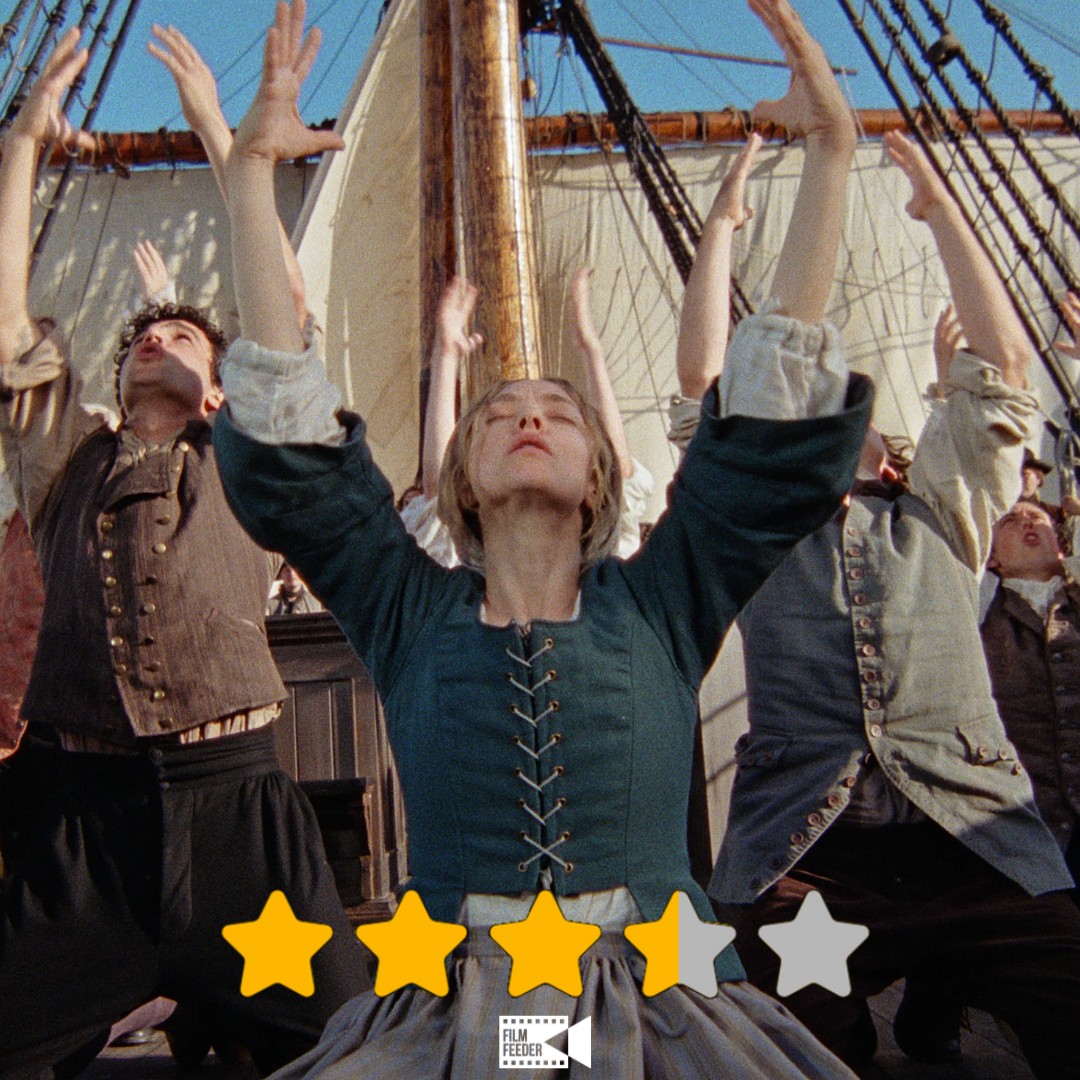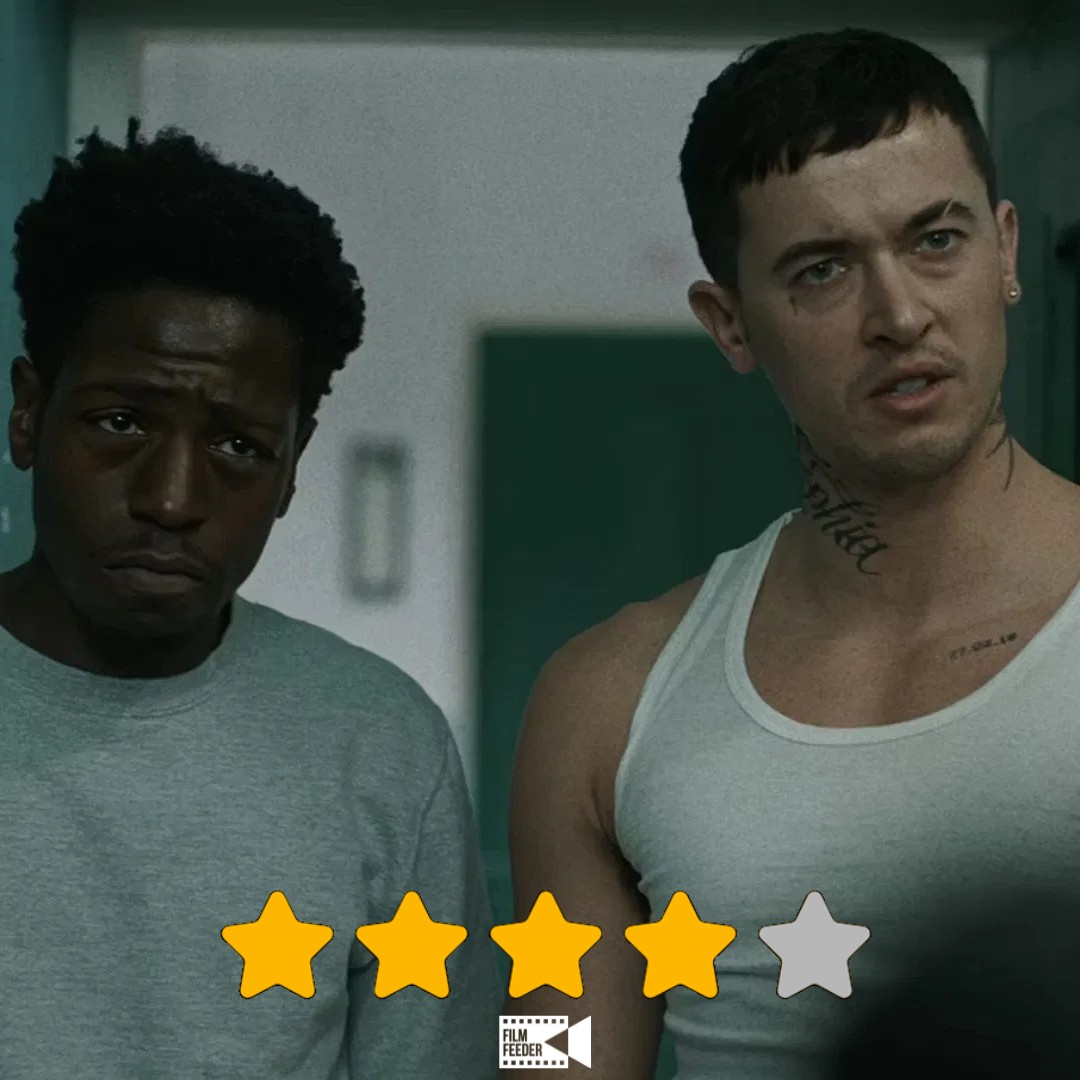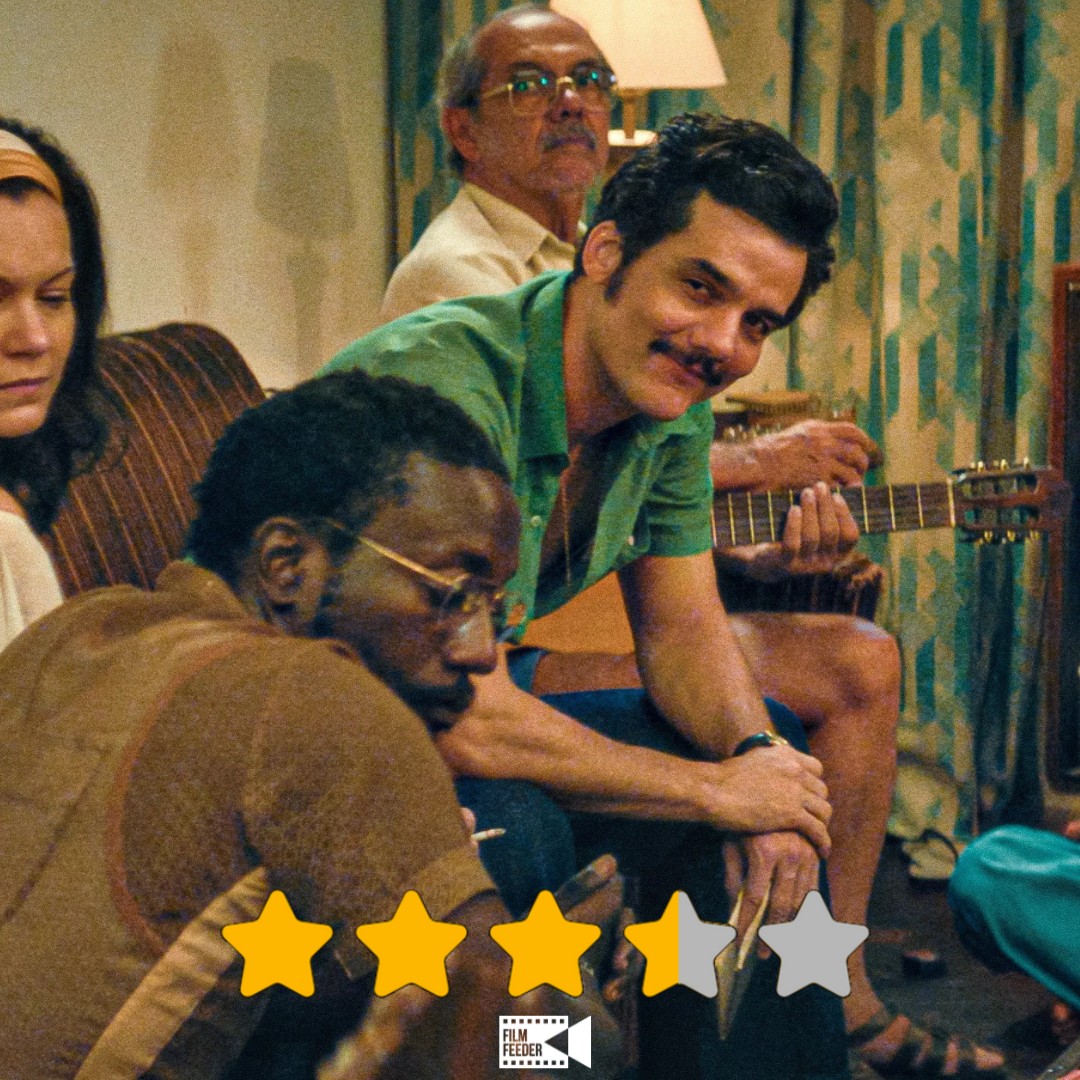
Sorry, Baby (dir. Eva Victor)
Certificate: 15
Running Time: 103 mins
UK Distributor: Picturehouse Entertainment
UK Release Date: 22 August 2025
WHO’S IN SORRY, BABY?
Eva Victor, Naomi Ackie, Lucas Hedges, John Carroll Lynch, Louis Cancelmi, Kelly McCormack, E. R. Fightmaster, Hettienne Park, Natalie Rotter-Laitman, Cody Reiss, Jordan Mendoza, Liz Bishop, Conor Sweeney, Alison Wachtler, Jonny Myles, Pricilla Manning, Celeste Oliva, Chhoyang Cheshatsang
WHO’S BEHIND THE CAMERA?
Eva Victor (director, writer), Mark Ceryak, Barry Jenkins and Adele Romanski (producers), Lia Ouyang Rusli (composer), Mia Cioffi Henry (cinematographer), Randi Atkins and Alex O’Flinn (editors)
WHAT’S IT ABOUT?
A college professor (Victor) tries to recover from a traumatic incident…
WHAT ARE MY THOUGHTS ON SORRY, BABY?
Throughout director/writer/star Eva Victor’s quite excellent debut feature Sorry, Baby, the classic novel Lolita is frequently referenced. Often, the book’s explicit subject matter is given the appropriate response – namely, “ew” – but its presence bears a deeper significance, for much like the titular character in Vladimir Nabokov’s novel, Victor imagines herself as a helpless waif reeling from the grooming and ultimate abuse of a much older man whose insatiable lust inflicts severe psychological damage onto her.
Unlike Lolita, though, Sorry, Baby takes a much less icky, but no more comfortable, approach to the difficult topic of assault, blending off-beat dark humour with frank maturity in a film that explores how someone in that position deals with such bad things happening to them and how they find a way to survive around the fallout. It’s quietly profound stuff, and announces Victor as a formidable triple-threat with plenty to say about things that aren’t being said enough.
Victor plays Agnes, who when we first meet her is working at a remote New England college as a literary professor (hence the Lolita motif), and lives alone in a similarly isolated house near the campus. She’s visited by her best friend and former study partner Lydie (Naomi Ackie) for the weekend, when the latter announces that she’s pregnant to Agnes’s shock and delight. It’s around this point when the film flashes back to when Agnes and Lydie are post-grad students under their professor Preston Decker (Louis Cancelmi), who has taken a favourable shine to Agnes after she presents him with her thesis. But after a visit to Preston’s house, Agnes isn’t quite the same, and it quickly transpires that there has been some unwanted contact between them, which she is unable to hold him accountable for after he abruptly resigns from his post, leaving her to deal with the emotional aftermath largely on her own.
While the (thankfully off-screen) central incident certainly looms over the film and its lead character, what’s fascinating here is that neither is defined by it. This is much more of a film about someone dealing with their own sense of self-worth, especially in the wake of something so dehumanising, and learning to not necessarily let go of the past but keep going in spite of it. As writer and director, Victor employs a deliberately dry tone to her character’s nature, one that might suggest a case of arrested development as a result of her trauma, but also adds an underlying seriousness to supposed jokes about killing herself. You’re never quite sure whether or not she means it when she says such things out loud, and the genius of Victor’s filmmaking is that it doesn’t offer any concrete answers to how she may finally overcome her issues, if at all, by the time it hard-cuts to black for the end credits. Like Victor’s Agnes, the audience just has to figure it out for themselves.
Sorry, Baby also dares to do what other films revolving around similar subject matter wouldn’t dream of doing and make it all rather humorous. Of course, the incident itself is untouchable in terms of comedy, but it is what Agnes says and does to keep herself occupied from sinking further into despair that earns the film some surprisingly strong laughs, whether it’s a half-thought-out plan to set her assailant’s office on fire using her adorkable neighbour Gavin’s (Lucas Hedges) lighter fluid, or igniting a friends-with-benefits relationship with that same neighbour, or deciding to adopt a stray kitten who later brings her a mouse she has to mercy kill. Victor, as both filmmaker and lead performer, embodies a warm and tender nature that allows the viewer to laugh along with some of her character’s awkward quirks, while still making it believable when she suddenly lets her trauma-ridden insecurities take over, such as in a scene where she’s calmed down from a panic attack by John Carroll Lynch as a blue-collar sandwich shop owner.
It’s astounding how Victor manages to achieve such a perfect tonal balance while addressing, or in Agnes’s case not addressing, the deeply troubling incident that fuels the character’s behaviour throughout the film. You can sense that Victor, even in her feature debut, has storytelling wisdom that transcends a lot of other first-time filmmakers with how well she incorporates wry observations about life as someone in her mental and emotional position into a film that, in other hands, would have taken the easier road of heavy sentimentality. In one major section, Agnes finds herself called up for jury duty and forced to bring up her trauma when asked if she can be an impartial juror, and it’s a sequence that could come off as a manipulative soapbox moment as she describes the law’s ineffectiveness with her own case, but Victor maintains enough composure to say what needs to be said and allow the situation to conclude with a sense of dignity and maturity for both sides.
Therein lies the true heart of Sorry, Baby and Eva Victor herself, who takes an incredibly hard-to-swallow topic and clears the airways for it to go down nicely, all while gently applying some well-chosen humour and wiser-than-its-years observations about dealing with life’s troubles in whatever way works best for the character at its centre. It really is an astonishing achievement, and one of the more profound films to come out this year.
SO, TO SUM UP…
Sorry, Baby is an excellent account of dealing with trauma and self-worth that sees director/writer/star Eva Victor impress on all fronts in a major debut that balances dry humour with honest and mature commentary on what it is to survive something awful yet not entirely lose oneself to it.














0 Comments